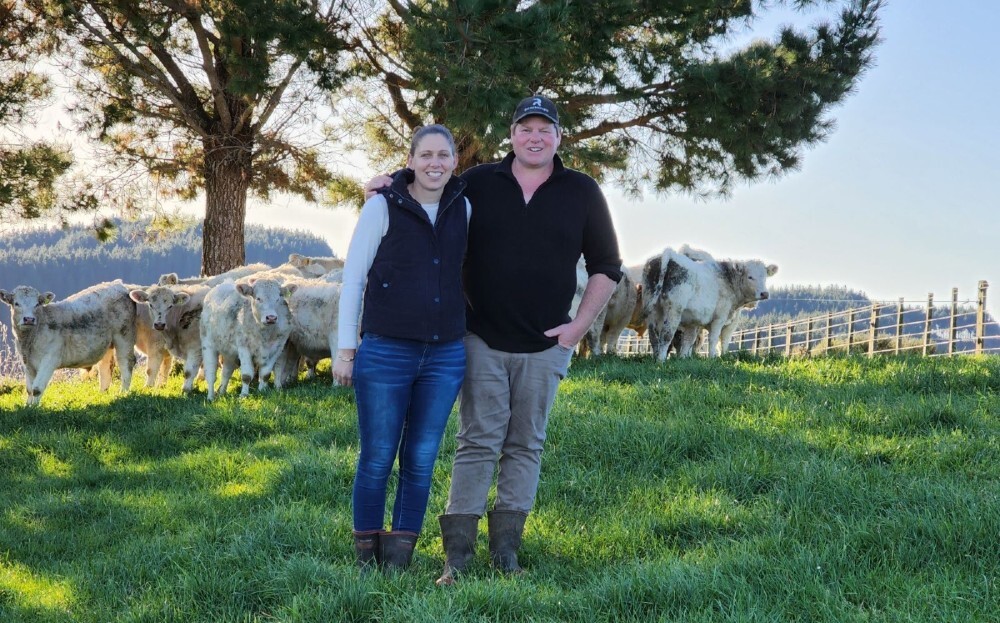The couple and their two children Anika (10) and Ayla (7), sharemilk 1,200 Friesian cows across three farms in South Taranaki, each one within five minutes of the other. They moved into breeding Charolais about five years ago when they decided to diversify their business, purchasing a dry stock farm and a Charolais stud.
“We’ve always been interested in the Charolais breed and dabbled in using Charolais genetics across our dairy herd to create a high value dairy beef calf,” says Kurt. “But about five years ago we had the opportunity to buy a Charolais herd and decided to take the leap.”
The couple now uses Friesian sexed semen from CRV for the first three weeks of their dairy herds’ mating to breed replacements. They then collect their own Charolais straws from their preferred stud sires to use on their dairy herd for the final six weeks of mating.
The Parry’s are Fonterra suppliers, so from 01 June 2023 they will be bound by the Cooperative’s policy to ensure every calf enters the value chain. But Kurt says they were already taking steps to create high value beef calves before the new policy was announced.
“We have always been driven to meet and exceed environmental and welfare targets. We understand why it’s important, so we are being proactive about making sure we are best practice farming and ready to tackle the challenges that might come our way in the future. Genetics plays a big part in making that happen.”
Using CRV’s sexed semen for the first three weeks means the Parry’s get a guaranteed rush of quality replacements at the start of calving. Kurt says their in-calf rate is the same as conventional semen. They use CRVs nominated Friesian sires and choose traits for width, capacity, udders and fertility in their dairy herd.

